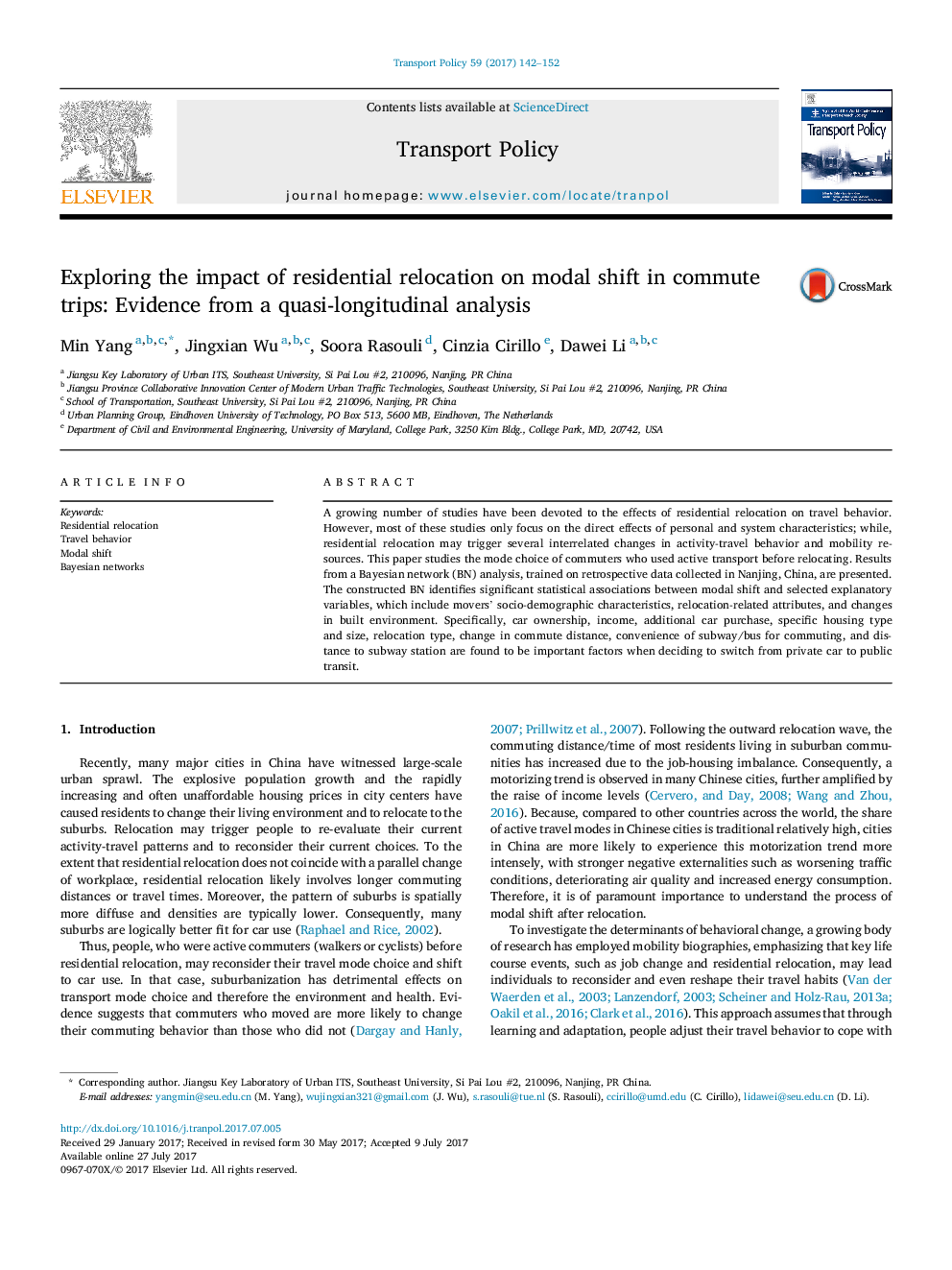| Article ID | Journal | Published Year | Pages | File Type |
|---|---|---|---|---|
| 5119141 | Transport Policy | 2017 | 11 Pages |
â¢Effects on socio-demographics, relocation-related characteristics, and changes in built environment were examined.â¢A retrospective travel survey collecting the above information was conducted among relocated residents in Nanjing in 2014.â¢A Bayesian network was extracted to represent the casual relationships between the modal shift and all related elements.â¢The inference results provide insights to develop effective countermeasures to prevent modal shifts to the private car.
A growing number of studies have been devoted to the effects of residential relocation on travel behavior. However, most of these studies only focus on the direct effects of personal and system characteristics; while, residential relocation may trigger several interrelated changes in activity-travel behavior and mobility resources. This paper studies the mode choice of commuters who used active transport before relocating. Results from a Bayesian network (BN) analysis, trained on retrospective data collected in Nanjing, China, are presented. The constructed BN identifies significant statistical associations between modal shift and selected explanatory variables, which include movers' socio-demographic characteristics, relocation-related attributes, and changes in built environment. Specifically, car ownership, income, additional car purchase, specific housing type and size, relocation type, change in commute distance, convenience of subway/bus for commuting, and distance to subway station are found to be important factors when deciding to switch from private car to public transit.
